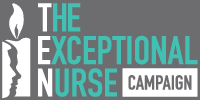HISTORY: UNDERSTANDING THE NURSING CRISIS IN SOUTH AFRICA
There is a serious shortage of professional nurses all over the world. Currently there is an estimated shortage of 30 000 professional and specialist nurses in South Africa. 50% of the nurses currently registered with the South African Nursing Council – SANC – are over the age of 50 and will be retiring within the next 10-15 years. We are losing 9,000 nurses annually due to retirement, emigration and death. The Nursing Education Institutions in SA presently only have capacity to train 3,000 nurses annually.
The growing nursing crisis in SA is complex, the cause of which can be traced back to decisions made regarding the training of nurses in 1995. Previously the nursing profession was considered a critical skill, the training of which was fully funded by Government. After 1995, everything changed!
First, due to limitations in Government funding, only 30% of all university student nurses received bursaries. The balance of 70% had the responsibility of raising personal tuition and residence fee. From 2019 The National Student Financial Aid Scheme (NFSAS) started awarding bursaries to the majority of South African Student Nurses.
Second, the 4 – year Diploma in Nursing Science was slowly replaced by a Bachelor in Nursing Science Degree, followed by 1 year Community service. A reduced number of Nursing Colleges offered the 4-year Diploma in Nursing.
Third, a number of Nursing Colleges were closed after 1994 in favour of University training for degree students. The remaining Colleges mostly offered the 2- year Enrolled Nurse Diploma and the 1-year Auxillary Nurse Diploma.

CAUSES OF THE GROWING PROFESSIONAL NURSE SHORTAGE:
- Due to huge advancements in medical science and technology since 2000, the South African Nursing Council has had to carefully evaluate the competence and quality of nurses being trained at all Nursing Education Institutions in South Africa. The Nursing Science syllabus is continually adapted to include the management of advanced computerized medical equipment, technology and modern nursing techniques.
- Challenges have arisen since 2020 with the accreditation of nursing colleges and the phasing in of new nursing qualifications. A large number of nursing colleges have failed to meet the standards required for accreditation by SANC which has further complicated the production of professional nurses in our country. The big shortage of qualified and experienced Nurse Educators in SA has further complicated matters.
- Presently, the South African Nursing Council Colleges and Universities combined, only have capacity for 3000 new recruits (student nurses) per annum.
- The NDoH financial budget for the training of nurses is inadequate.
- A large percentage of experienced nurses are reaching retirement age – 65.
- Others are leaving to work for better salaries and working conditions abroad.
- The pleasant working environment in the growing number of private hospitals attracts nursing staff away from Government Facilities. This exacerbates the staffing problem for the NDoH.
- The Nursing profession is no longer attracting academically strong, committed new recruits in SA.
- The Nursing profession is under-valued by society in general.
- Because of the high crime rates reported in the media, many nurses are unwilling to work in township and rural hospitals where medical care is most needed.
NEW NURSING QUALIFICATIONS APPROVED BY SANC - JANUARY 2022
Accredited Nursing Colleges may offer:
1 year Certificate in general nursing to qualify as an Auxiliary Nurse.
3 year Diploma in general nursing followed by 1 year of community service to qualify as a Registered Nurse.
Accredited Universities may offer:
4 year Degree in Nursing Science followed by 1 year of community service to qualify as a Professional Nurse.
1 – 2 year Post-graduate courses are also offered to Honours, Masters and Doctorate level in a wide variety of nursing disciplines.
THE MAIN CAUSE OF THIS CRISIS
The Annual Budget Allocation from National Treasury to the National Department of Health is drastically inadequate to meet the nurse training PLUS the healthcare needs of our growing population. 187 Billion rand was allocated and spent during 2017, by the National Department of Health to provide healthcare for all. This figure translates to an amount of R 3 300 per citizen. (Trialogue 20th Edition). An estimated EXTRA 13 billion rand per annum is needed to bring lasting changes, towards improving healthcare for all.
